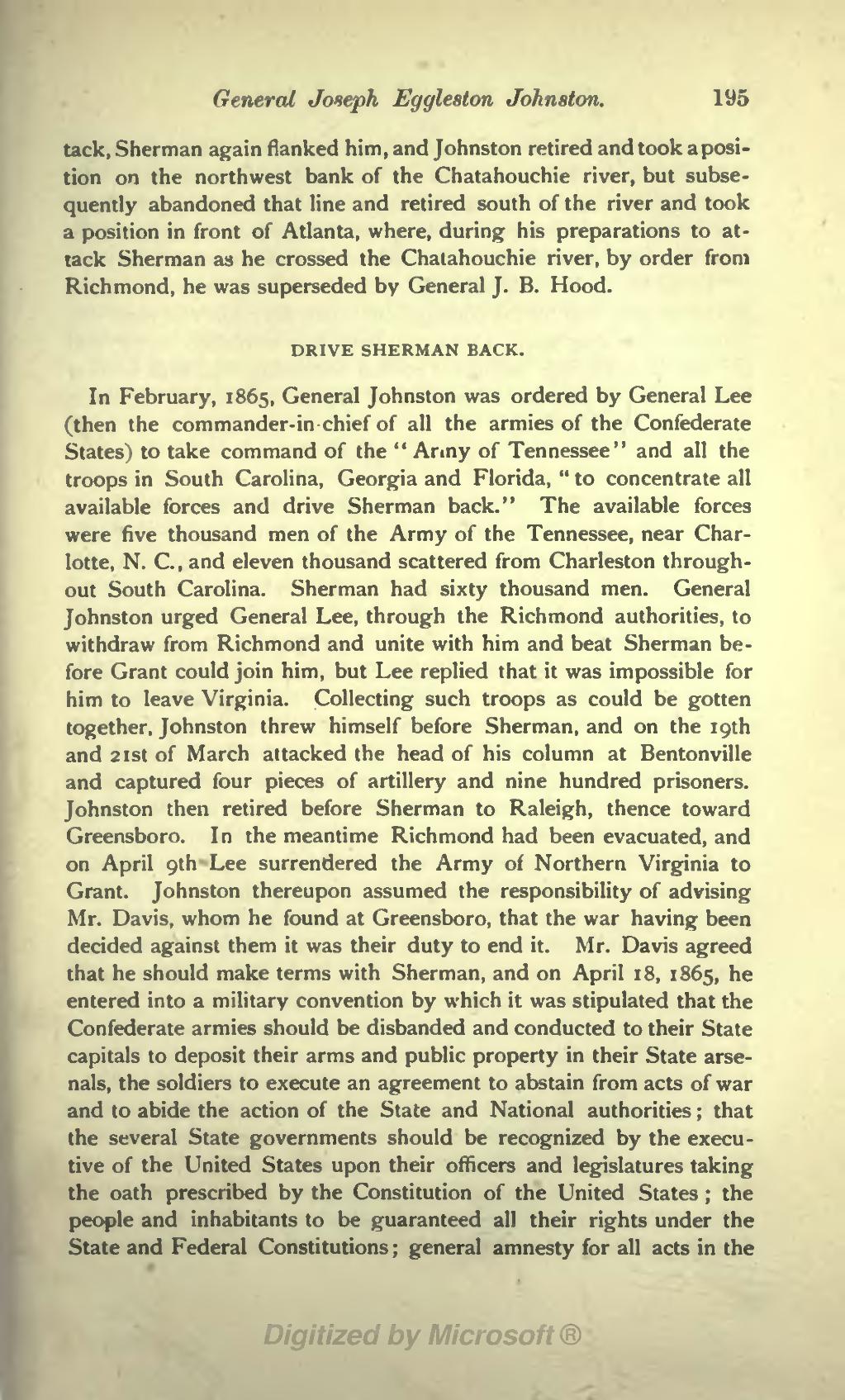General Joseph Eggleston Johnston. 195
tack, Sherman again flanked him, and Johnston retired and took a posi- tion on the northwest bank of the Chatahouchie river, but subse- quently abandoned that line and retired south of the river and took a position in front of Atlanta, where, during his preparations to at- tack Sherman as he crossed the Chatahouchie river, by order from Richmond, he was superseded by General J. B. Hood.
DRIVE SHERMAN BACK.
In February, 1865, General Johnston was ordered by General Lee (then the commander-in chief of all the armies of the Confederate States) to take command of the " Army of Tennessee" and all the troops in South Carolina, Georgia and Florida, " to concentrate all available forces and drive Sherman back." The available forces were five thousand men of the Army of the Tennessee, near Char- lotte, N. C. , and eleven thousand scattered from Charleston through- out South Carolina. Sherman had sixty thousand men. General Johnston urged General Lee, through the Richmond authorities, to withdraw from Richmond and unite with him and beat Sherman be- fore Grant could join him, but Lee replied that it was impossible for him to leave Virginia. Collecting such troops as could be gotten together, Johnston threw himself before Sherman, and on the iQth and 2ist of March attacked the head of his column at Bentonville and captured four pieces of artillery and nine hundred prisoners. Johnston then retired before Sherman to Raleigh, thence toward Greensboro. In the meantime Richmond had been evacuated, and on April gth'-Lee surrendered the Army of Northern Virginia to Grant. Johnston thereupon assumed the responsibility of advising Mr. Davis, whom he found at Greensboro, that the war having been decided against them it was their duty to end it. Mr. Davis agreed that he should make terms with Sherman, and on April 18, 1865, he entered into a military convention by which it was stipulated that the Confederate armies should be disbanded and conducted to their State capitals to deposit their arms and public property in their State arse- nals, the soldiers to execute an agreement to abstain from acts of war and to abide the action of the State and National authorities ; that the several State governments should be recognized by the execu- tive of the United States upon their officers and legislatures taking the oath prescribed by the Constitution of the United States ; the people and inhabitants to be guaranteed all their rights under the State and Federal Constitutions ; general amnesty for all acts in the
